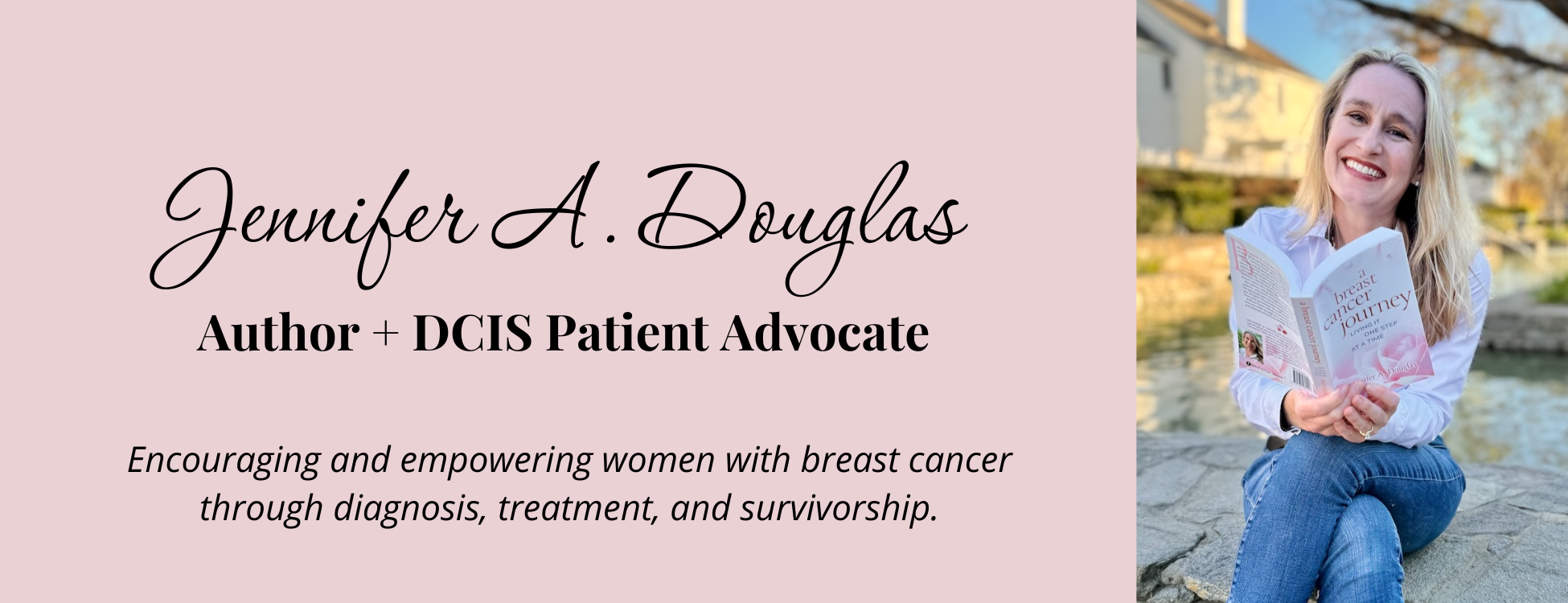
A Cancer Diagnosis is Shocking- It is Okay to Have Strong Feelings
A cancer diagnosis of any stage or type is shocking. In one split second, we go from getting some routine scans to being a cancer patient. Strong feelings come with the territory. Whatever you are feeling is okay. Cancer sucks. It may not kill you if it is caught early, but the treatments are no walk in the park- even the “little ones.”
Note: I am not a medical expert and this is my own opinion. Please seek professional advice for your healthcare needs. My disclaimer has more information.
Inspiration for this Article
In 2021, USA Today published an article entitled “Breast Cancer Stages Explained.”
2025 update: This article and the quotes have since been removed from the platform. Apparently, the author had fabricated some of the quotes inside the article.
I will leave my thoughts here but remove the doctor’s name to reflect the changes made on USA Today’s website.
When I saw the headline, I was excited. I hoped that it would explain the various stages of breast cancer to the readers and shine a light on the different treatment options available.
I wasn’t expecting to read an article that would tell me how to feel about my diagnosis.
One particular quote by the oncologist interviewed for the article didn’t sit quite right with me.
Here is the quote that hit me wrong- as referring to DCIS (Stage 0)
“At this stage of breast cancer, we tell patients not to be too worried. Stage 0 is extremely treatable and we ask people not to shed a tear over the diagnosis just yet,”
Full Stop.
Did someone I don’t know just tell me that I shouldn’t cry over a cancer diagnosis?
In my breast?
Really?
Precisely what should I feel because I didn’t really want to be a cancer patient in the first place?
If I cry, am I wrong?
Am I a “bad cancer patient” because I have strong feelings?
Am I doing cancer wrong because I’m scared?
Should I throw myself a party now?
Yes, Stage 0 is highly treatable. But, unfortunately, Stage 0 isn’t a guarantee that breast cancer will never come back.
Let’s Focus on Educating, Not Telling Cancer Patients how to Feel
Instead of telling us how we should feel, the focus ought to be on patient education. As patients, we don’t spend day after day reading pathology reports and making treatment recommendations. Many of us have never been cancer patients before. Or maybe we have. Perhaps we know family members who have died of cancer.
We don’t spend our lives living in the cancer world. And, given an option, we would have never chosen to enter it.
And yet, here we are. We are facing something new, and we are looking for direction and guidance.
We might be afraid, angry, bitter, shocked, or hopeful. Whatever our emotions might be, we aren’t wrong. So please don’t tell us how to feel.
If we want to cry over a Stage 0 diagnosis, let us.
My Emotional Rollercoaster with DCIS
I remember feeling as if I had been thrown into a cold pool when the surgeon told me my biopsy results in 2019. I had a small area of DCIS that was about the size of a grain of rice. It was stage 0 breast cancer— and it was caught at the earliest stage possible.
The shock of the diagnosis hit me. I was numb. This was a blessing because it allowed me to listen to the next steps my surgeon was recommending. I was detached and in survival mode for a while after the diagnosis.
I was surprised that I was handling it as well as I was. It wasn’t until the next day after I’d made many phone calls to family and had a little while to sit on the diagnosis, that the emotions came up.
The intense emotions seemed to come out of nowhere. I yelled, cried, and prayed. I was hopeful one moment and terrified the next.
Each new biopsy or test could drastically change my prognosis. For example, while the initial biopsy was Stage 0, additional imaging could mean an upgraded cancer stage.
Then there were the questions that came up in the quiet moments.
- Which surgery was the right one?
- What if I picked the “wrong one,” and it came back?
- What if I was disfigured or got an infection?
- What if I died on the operating table?
- Would I leave my husband a widower?
- Was my diagnosis going to escalate to the point of needing chemotherapy?
- Should I get a haircut or not? (See question above)
These were not the questions that I had before my diagnosis. I wasn’t evaluating treatment options and trying to decide if I would prefer to have my breasts removed via mastectomy or have a lumpectomy. I wasn’t thinking about if I wanted to spend the Christmas season in radiation treatment.
Then there was the exhaustion. Emotionally, I was drained. Every biopsy seemed to pull yet another piece of energy out of me.
I was full of emotions.
The MRI Report- and How My Surgeon Validated my Feelings
The breast MRI was supposed to finalize the plans for my lumpectomy. Ideally, it would confirm no other malignancies, and the surgery could proceed as planned.
Unfortunately, that wasn’t the case. I wrote all about my MRI and the additional biopsies in this post.
I remember sitting on the exam table a few days after my MRI, waiting for my surgeon to come in.
After the usual greeting, it was time to discuss what was next. Unfortunately, there was no way my surgery would be able to proceed, especially since radiology wanted to order three more biopsies on me.
“If I decided to do a mastectomy, could we avoid the biopsies?” I asked.
I really hated biopsies, and I didn’t want to have any more of them.
“No, unfortunately, I will need the information for the biopsies to see if there’s cancer in the lymph nodes,” was his reply.
I sighed, and then I told him I had spent the last few days really angry and frustrated at the delay and the additional test.
What he said next was shocking.
He said, “I was frustrated too.” (Or something to that extent. I can’t quite recall the exact words)
What??? My surgeon was frustrated too?
About once a year, his patients’ breast MRIs revealed additional findings that were as surprising as mine. As soon as he’d received my results, he contacted radiology to ensure the biopsies were essential. Additional imaging had confirmed the suspicions.
My surgeon didn’t dismiss my frustrations or emotions. In fact, by aligning and acknowledging my feelings, I was able to calm down. His actions reinforced that It was okay for me to feel this way. I still needed to get the biopsies— and I wasn’t happy— but I knew why I would go through with them.
My emotions weren’t dismissed.
I wasn’t told that I “should” be feeling a certain way.
It was okay not to “think positive”- Love this article
I wasn’t wrong for feeling angry.
I wasn’t wrong for feeling scared.
I wasn’t wrong for crying over my Stage Zero Breast Cancer.
Shedding tears didn’t make me a weak person or a bad cancer patient. Instead, it made me a human who entered a world I didn’t ask to be a part of.
If you are in the midst of a cancer diagnosis and feel strong emotions, you are not alone, and you are not wrong.
Emotional Support Ideas
So, how can we come alongside those of us with cancer? Support will look different for everyone. Here are a few ideas:
- Acknowledge our feelings
- Ask us how we are really doing
- Listen to us
- Educate us on our treatment options
- Refer us to emotional support resources
- Present our treatment choices to us in a way that validates our concerns
Cancer emotions don’t care what stage your cancer is. Stage Zero cancer doesn’t mean zero difficulties. Cancer is hard, physically, mentally, and emotionally. Let us find ways to support and surround each other without blaming or minimizing the feelings.
Recommended Resources:
Emotions are Hard. Please seek out professional support from your medical team if you find things getting overwhelming. If your doctor doesn’t listen, get another one. If a loved one is dealing with a cancer diagnosis and you’re struggling, please consider seeking out support as well.
- https://www.cancer.gov/about-cancer/coping/feelings
- https://www.apa.org/topics/behavioral-health/breast-cancer
- The Big Ordeal, written by Cynthia Hayes, focuses specifically on the complicated emotions that cancer patients and their caregivers experience. Here is an excellent post to read.
Your feelings matter… and it doesn’t matter what stage or type your cancer is. So let us stop telling cancer patients how they should feel. Instead, let us listen and come alongside one another in support.
Jennifer Douglas
Jennifer Douglas is an author, patient advocate, and DCIS breast cancer survivor. After navigating her own breast cancer journey in 2019, she began writing and encouraging others who were newly diagnosed. Her resources include her book, "A Breast Cancer Journey: Living It One Step at a Time," and her online support course, "Encourage: Breast Cancer and Beyond." Jennifer also actively supports patients through her online presence and direct involvement in communities and support groups, offering guidance and encouragement every step of the way.


You May Also Like

One Year Cancerversary: My Diagnosis Day
October 20, 2020
My Two Favorite Lumpectomy Recovery Bras
January 31, 2023

One Comment
Susan Budde
Good article!